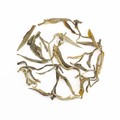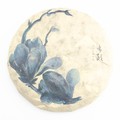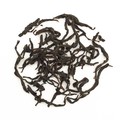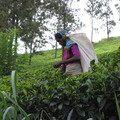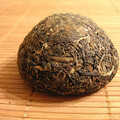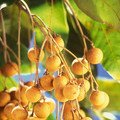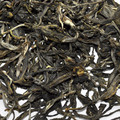Essence of Tea - Teas
Tea by type
Tea by region
Tea by years and other
1980's Zhongcha 8653 (HK/Malaysian stored)
 0 reviews
0 reviewsProduced in the mid-late 1980's, these cakes were stored for the first 10-15 years of their life in Hong Kong in traditional, fairly humid storage. They were then bought by a tea merchant in Malaysia and have been stored there since. Their time in Hong Kong has allowed the tightly pressed cakes to age well, with their subsequent storage and ageing in Malaysia allowing the tea to become more refined and much of the traditional storage flavour to dissipate. The end result is a...
2013 A few Single Trees (maocha)
 1 review
1 reviewThis tea is a blend of a few single tree teas from Bangwei and Bulang. These trees stand out from their neighbours as some of the biggest and oldest trees in their gardens. This is a very special tea. It is composed of a large proportion of buds, from the first flush of Spring. The taste is very pure, thick and with plenty of strength. There is a hint of taste from the wok, perhaps it wasn't cleaned properly between batches during hand-processing, but this should settle over the...
2012 EoT Bulang Puer Tea 400g
 1 review, 1 comment
1 review, 1 commentThis tea was a bit of an experiment for us. We'd found 2 different maochas from Bulang mountain, which were each excellent, but in different ways. One was old trees from around Manmu village, while the other was old trees from a few km away. We went back and forth, trying to choose one of them to press into cakes, and in the end decided to blend the two teas. The Manmu was very pure in flavour with a strong qi and strong ku (pleasant bitterness), the other was thicker in the mouth and more...
2013 Wuliang Wild Hongcha
 2 reviews
2 reviewsThis tea is collected from ancient, wild trees on Wuliang mountain. These are truely wild trees, that haven't been planted by humans and average around 800-1000 years old. The leaves naturally have honey like characteristics in the taste and aroma, which lends them very well to being made into hongcha (Red/Black tea). I find it difficult to get excited by many hongcha - the oxidisation often seems to mute many of the characteristics of teas that I find most enjoyable. This one...
Theme
Quotes
„Prickling, Tingling, Numbing
Ancient tea trees are all over 100 years old. Their ability to resist natural problems; diseases and infestations is high. This variety of tea tree has existed in this habitat for thousands of years. These trees are already extremely resilient and the environment in which they are growing has mostly been left in untouched. There is no need for tea farmers to use agro-chemicals. But where any such chemicals have been used it will likely take 7-10 years for the residues to abate sufficiently for the tea to be drinkable.“
Latest posts
07.06.2025 @ 07:48:53 - lalo233:
The unforgiving landscapes of Arrakis in Dune: Awakening demand a mastery of combat....
07.06.2025 @ 07:48:50 - lalo233:
The unforgiving landscapes of Arrakis in Dune: Awakening demand a mastery of combat....
01.01.2016 @ 18:14:35 - Eternal Spring:
WeRateTea.com wish you all the best for 2016!...
07.12.2015 @ 09:07:02 - sypalino:
I decided to taste this tea 2 weeks after delivery. The cake is lightly pressed, so...
09.11.2015 @ 21:58:19 - Eternal Spring:
Comparison of 2013 Bada Pu-erh.sk with <a...
09.11.2015 @ 09:34:07 - Eternal Spring:
Lao Yu 2013 is now about 2,5 years old tea and out of this 1,5 year stored in Europe....
09.11.2015 @ 09:33:11 - Eternal Spring:
Comparison of all three Lao Yu is now done :)
15.10.2015 @ 11:06:37 - Eternal Spring:
2015 Chawangpu Collection – I can only tell, that all teas are very good :)
09.10.2015 @ 10:31:19 - Eternal Spring:
It was quite long and difficult tasting to make a decision… There is still quite...
24.01.2015 @ 16:55:57 - Eternal Spring:
WeRateTea.com wish you all the best for 2015!...
Tea by region
We will help you with tea selection.
Do you like quality loose tea?
We will help you to find the right one for you. Be inspired by tea ratings of other tea lovers. Rating stars could help you.


Review your cup of tea.
Review the tea you are drinking and help other tea lovers to find the right cup of tea.






 Shops
Shops

